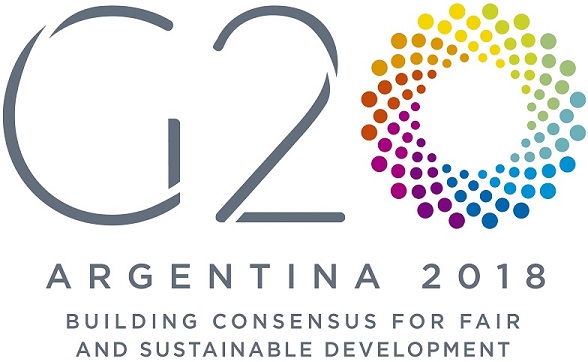G20 Struggles to Limit the Trade War
July 23, 2018 | Expert Insights

Finance ministers and central bankers from the world’s largest economies met in Argentina for the first meeting since the globalised economy has been assaulted by series of tariffs and counter-tariffs. Oil prices subsequently fell on 23 July.
Background
On 25 September 1999, following the Asian financial crisis, G-7 finance ministers and central bank governors proposed ‘to broaden the dialogue on key economic and financial policy issues among systemically significant economies to achieve stable and sustainable world economic growth.’ Thus, the ‘Group of 20,’ was formed with 19 countries: Argentina, Australia, Brazil, Canada, China, France, Germany, India, Indonesia, Italy, Japan, South Korea, Mexico, Russia, Saudi Arabia, South Africa, Turkey, the UK and the US, plus the European Union. Together, members account for roughly 85% of the world economy (around three-quarters of global trade and two-thirds of the world’s population)
As an international forum which works within the Bretton Woods system, summits are attended by representatives from the World Bank, IMF, UN and WTO. In the run-up to summits, senior officials known as "sherpas" identify issues for discussion, with the aim of getting G20 members to reach agreement at the summit. There are also meetings of finance ministers and central bank governors, trade representatives and anti-corruption working groups.
At the most recent summit in Hamburg, Germany, US President Donald Trump opposed the views of the other 19 members on climate change and steel tariffs. Since then, US has unilaterally imposed series of duties, circumventing WTO regulations, and leading to a volley of tariffs and counter tariffs.
Analysis
“Global growth remains robust and unemployment is at a decade low. However, growth has become less synchronised recently, and downside risks over the sort and medium term have increased,” according to the final communique at the meeting in Buenos Aires.
In recent months, experts have begun sounding the alarm about an impending trade war between US and China, the two largest economies in the world. Fears heightened in March, when Trump announced global import tariffs of 25% on steel and 10% on aluminium. He has now threatened to impose tariffs on all $500 billion worth of Chinese exports to the US unless Beijing agrees to major structural changes to technology transfer, industrial subsidy and joint venture policies. However, there was no substantive discussion between US and China. Instead, Steven Mnuchin acknowledged trade worries with EU, Canada, Mexico and Japan.
France expected success in talks only if US removes tariffs on steel and stands down from threats of automobile tariffs. Mexico and Canada were optimistic about altering the trilateral North American Free Trade Agreement (NAFTA) in the near future.
European Commissioner for Economic and Financial Affairs Pierre Moscovici said that global trade tensions were high and threatened to escalate further, placing the multilateral system under significant pressure. He said, however, that the economic impact had been limited so far. Consensus regarding tariffs between US and EU has been strained since Trump called the EU a “foe,” and strong armed NATO members.
Brent crude dropped to $72.98 a barrel after talks concluded. Economic growth and oil demand growth are closely correlated as expanding economies support fuel consumption for trade and travel, as well as for automobiles. US production has been limited amid price decline, however, Saudi Arabia has offered to increase production to cover the deficit. On the other hand, angered by sanctions Iran has contemplated shutting off the Persian Gulf if their oil exports are stopped.
The ugly side of globalisation has become apparent as nations are blaming one another for the vicious cycle of income and employment losses, whilst they try to stimulate economic growth through simultaneous currency devaluations. Forming the largest chunk of world trade, the G20 must reorient their priorities in order to shelter the current world order from further political and economic duress.
Counterpoint
The G20's prominent membership gives it a strong input on global policy despite lacking any formal ability to enforce rules. Transparency and accountability has been questioned owing to then absence of a formal charter and the fact that the most important G20 meetings are closed-door.
Assessment
Our assessment is that the G20 requires a high degree of collective commitment alongside technical measures to realign the protocol on globalisation. We believe that the countries ought to address short-comings in legitimacy through a formal framework for jurisdiction, membership and so on. We feel that the forum has opened channels of communication which can be used to renegotiate existing multilateral trade agreements.








Comments